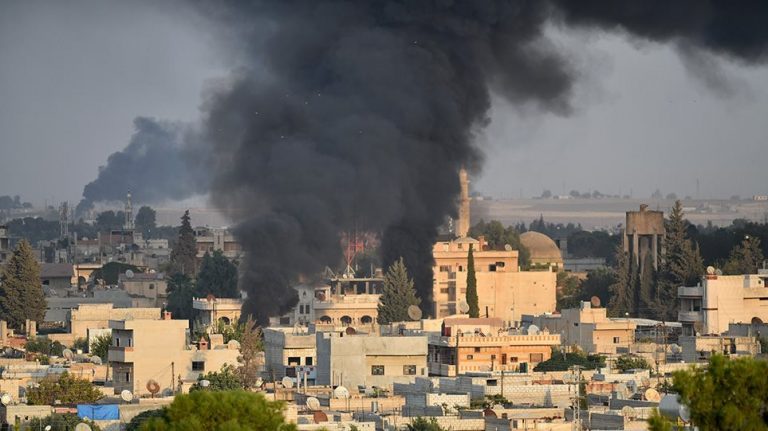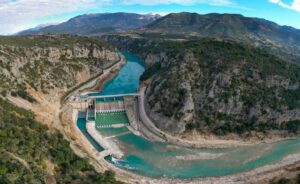Background
Following Operation Peace Spring in the area, from which the US-led coalition withdrew to fight the Islamic State/ISIS, the terrain stretching from Ras al-Ayn/Serê Kaniyê to Tell Abiad was controlled by the Turkish army, while the armed groups of the National Army divided it among themselves, including the al-Jabha al-Shamia / Levant Front, Faylaq al-Majd / Majid Corps, and Ahrar al-Sharqiya / Rebels of the Eastern Area, which took position in Tell Abiad, while the Sultan Murad Brigade and the Hamza Division / Hamzat mainly controlled Ras al-Ayn/Serê Kaniyê. Other armed groups, including Jaysh al-Islam / Islam Army and Fayalaq al-Rahman / al-Rahman Legion, as well as the al-Safwa / Elite Brigade, operating under the Second Legion of the opposition-affiliated Syrian National Army, were also stationed in the area, however, in smaller numbers.
On 9 October 2019, Turkish President Rajab Tayyip Erdogan announced the launch of Operation Peace Spring in northern Syria, spearheaded by Turkish forces and allied rebel groups of the National Army of the Syrian Interim Government,[1] operating under the National Coalition for Syrian Revolutionary and Opposition Forces. A day before the start of the operation, the National Coalition for Syrian Revolutionary and Opposition Forces released a statement supporting the Turkish announcement of a looming military operation in the region. The statement said: “The Coalition supports the efforts of the National Army, the Ministry of Defense and those of the Joint Chiefs of Staff. We confirm the readiness of our National Army to combat terrorism in cooperation and joint action with brothers in Turkey.”[2]
The Turkish military invasion of Northeastern Syria led to a massive wave of displacement, especially the operation’s onset. According to the United Nations / UN, on the two weeks that ensued the operation’s launch, about 180,000 people, mostly women and children,[3] were displaced, 10,000 people of whom sought refuge in Kurdistan Region of Iraq (KRI). The invasion, furthermore, ended with the Turkish Army’s control of large Syrian territories.
The European Parliament blocks accession talks with Albania
Introduction
Following Operation Peace Spring, the National Army seized 12 grain silos (structures established for storing strategic grain stocks of the area’s residents) in Tell Abiad and Ras al-Ayn/Serê Kaniyê. On 1 December 2019, nonetheless, it retreated from the Aliyah silos’ area and from that of the al-Shirkrak silos on 9 December 2019 — both located on the M4 International Highway, under the Turkish-Russian agreement, most terms and provisions of which were undisclosed back then.[4]
Youssef al-Hamoud, spokesperson of the Syrian National Army, reported to local media outlets that one of the agreement’s terms provided for the spread of Syrian Regular Forces and their Russian counterparts south of the M4 highway, while The Turkish forces, along with the National Army’s factions are to take positions north the highway, which is to be supervised by joint Russian-Turkish patrols. The spokesperson also pointed out that Russia has already embarked on setting up a military base within the Aliyah silos’ area, located on the southern part of the M4.[5]
Read more: stj-sy.org
Ask me anything
Explore related questions





